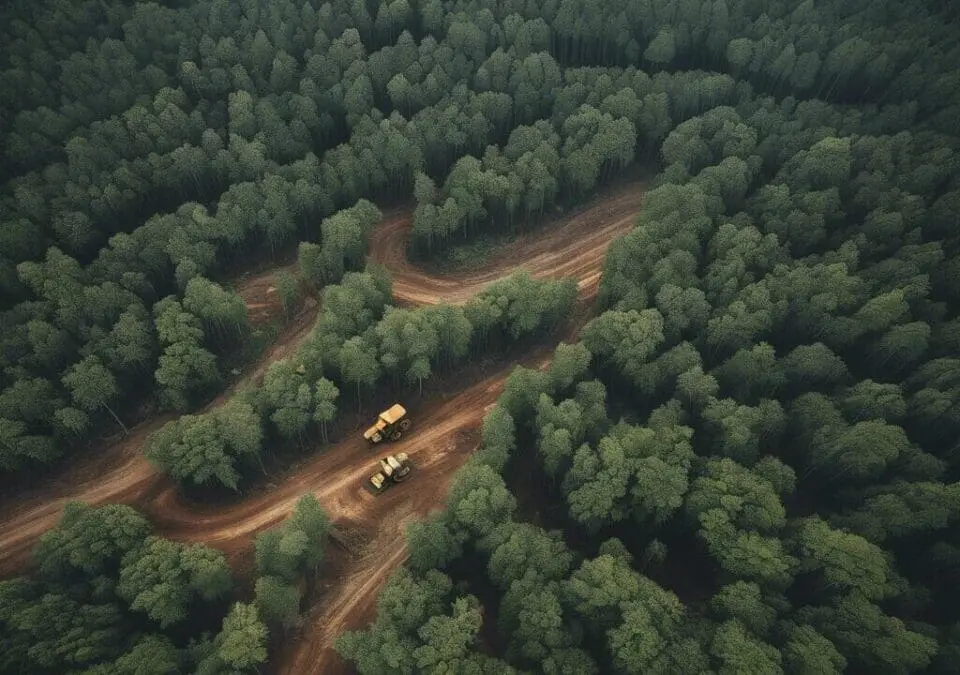New rules to combat deforestation will now take effect in late 2025, providing businesses additional time to adapt.
In a significant move to address global deforestation, the European Parliament has voted to delay the implementation of new EU regulations aimed at banning the sale of products linked to deforested land. The rules, originally set to take effect at the end of 2024, will now apply from December 30, 2025, for large operators and traders, and from June 30, 2026, for micro- and small enterprises.
The decision to postpone the application of the deforestation law was approved with overwhelming support in Parliament, garnering 546 votes in favor, 97 against, and 7 abstentions. The delay comes in response to concerns raised by businesses, EU member states, and non-EU countries about their ability to fully comply with the stringent requirements within the original timeline.
The regulation, adopted in April 2023, is a cornerstone of the EU’s efforts to combat climate change and biodiversity loss by banning the sale of products such as cattle, cocoa, coffee, palm oil, soya, wood, and rubber that are linked to deforestation. EU consumption is responsible for around 10% of global deforestation, with palm oil and soya production accounting for the majority of this impact.
A Year of Preparation for Deforestation Law
The European Commission proposed the one-year extension to give companies more time to prepare for the new rules without compromising the regulation’s objectives. Parliament’s rapporteur Christine Schneider (EPP, Germany) emphasized the importance of this additional time in ensuring a smooth transition.
“We promised and we have delivered,” Schneider said. “We paid attention to the calls of several sectors facing difficulties and ensured that affected businesses, foresters, farmers, and authorities will have an additional year to prepare. This time must be used effectively to ensure that the measures announced in the Commission’s binding declaration, including the online platform and risk categorization, are consistently implemented to create more predictability throughout the supply chain.”
Schneider also highlighted the importance of reducing administrative burdens for businesses, particularly in low-risk countries, and urged the Commission to follow through on its commitments.
Commission’s Commitments
As part of the agreement, the European Commission has pledged to make the necessary information systems and risk classification proposals available by June 30, 2025. These tools are critical for ensuring that businesses can comply with the regulation efficiently. A general review of the rules is scheduled for no later than June 30, 2028, during which additional measures to simplify compliance procedures will be considered.
The delay must now be endorsed by the Council and published in the EU Official Journal by the end of 2024 to take effect.
A Global Problem
The urgency of the deforestation regulation is underscored by alarming statistics from the UN Food and Agriculture Organization (FAO), which estimates that 420 million hectares of forest — an area larger than the EU — were lost to deforestation between 1990 and 2020. The EU’s consumption patterns play a significant role in this crisis, with over two-thirds of its deforestation impact linked to palm oil and soya production.
The regulation represents a bold step in the EU’s fight against deforestation, aiming to align its consumption practices with global sustainability goals. By targeting key commodities and requiring businesses to prove their products are not sourced from deforested land, the law seeks to reduce the EU’s contribution to climate change and biodiversity loss.
With the postponement now approved by Parliament, the focus shifts to ensuring the regulation is implemented effectively. Parliament has pledged to closely monitor the process, ensuring that the Commission delivers on its promises to reduce bureaucracy and provide the necessary tools for compliance.
As the world grapples with the devastating consequences of deforestation, the EU’s regulation serves as a critical test of global efforts to balance economic growth with environmental sustainability. While businesses have been granted more time to adapt, the clock is ticking on the planet’s forests.






